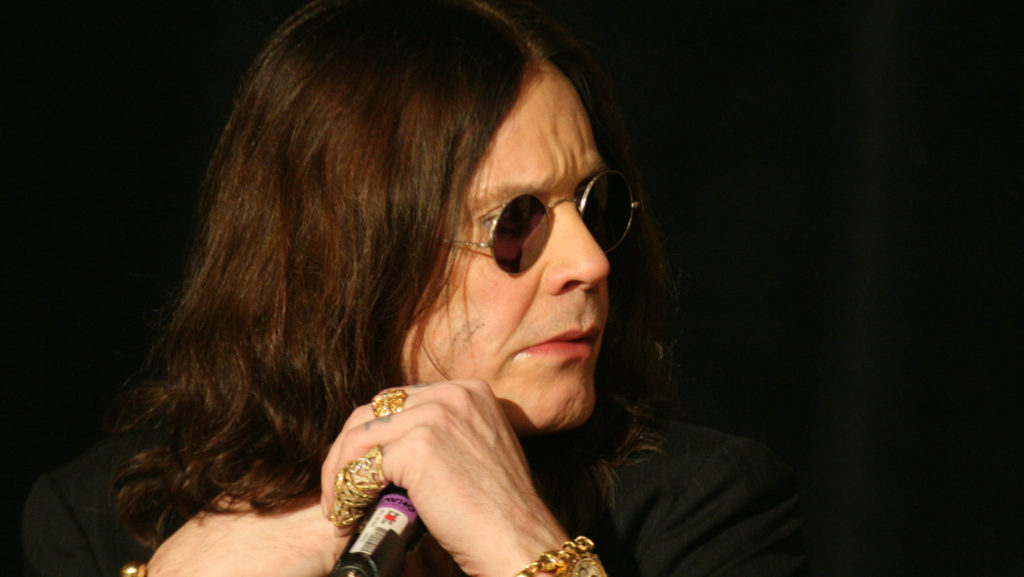When someone as famous as Ozzy Osbourne dies, it produces a rush to adulate. Any serious Catholic wants everyone to get across the spiritual finish line. The celebrity status of the deceased should not increase or decrease our duty of praying for all souls and leaving them in the custody of a merciful God. That probably explains the Catholic commentators and bloggers who have opined on the passing of Osbourne and how it could be an unlikely field where a bounty of grace can be harvested.
Brandon Towell, a blogger for the National Catholic Register — not exactly the moral equivalent of Rolling Stone magazine — wrote an interesting piece claiming there was a consistent and earnest quest for the truth in Ozzy’s music despite its trappings of darkness and satanic-adjacent presentation.
As someone who also dabbles in trying to locate and celebrate elements of the truth even in popular culture, I admire Towell’s attempt. After seeing a few minutes here and there of Osbourne’s almost bourgeois existence via his reality TV show, I can see that underneath the makeup, black trench coats, and bat biting, there existed a basically simple and even humble husband, dad, and granddad.
Towell takes it a step further by suggesting the chaos and frenzied nature of hard rock has a cathartic effect on its aficionados, and he sees a spiritual component in that connection: “It’s not violence — it’s wrestling with violence. It’s not chaos — it’s a protest against a chaotic world. That’s something the biblical prophets understood — and perhaps something more Christians might consider, too.”
The Catholic Herald magazine in the UK, Osbourne’s homeland, also contributed to the Catholic commentary. In this piece, the writer delves into how a Black Sabbath anti-war song aligned with the Catholic “Just War” theory. The article goes further, suggesting that toward the end of his life, Osbourne had some kind of devotion to the Blessed Mother, and reinforces what Osbourne claimed many times: That he and the band were never Satanists, just a rock-and-roll band. This is quickly followed up with the caveat that many of the songs and certainly the lifestyle Osbourne and his bandmates lived to its fullest did not always comport with other important Catholic moral teachings. And therein lies the rub.
I was never “into” Black Sabbath, Osbourne, or heavy metal music in general, so I will defer to these authors on the premise that instead of trading in the “dark arts” or the occult, the lyrics from Black Sabbath can be construed as seeking calm out of chaos and good out of evil. But there is more to this than meets the all-seeing eye.
Black Sabbath and its famous lead singer did not invent the concept of using satanic imagery and the allure of the occult to sell records and fill stadiums. They are not the first ones to survive the hedonistic lifestyle and come out the other side with a healthier view of life. Head banger extraordinaire Alice Cooper is still making a living with macabre rock stage shows while simultaneously living in domestic bliss in Arizona with decades of sobriety thrown in for good measure.
But all the rockers who perform as satanic posers play a role in normalizing something that needs to be avoided at all costs. As any Church-sanctioned exorcist will attest, even a casual brush with the occult can lead to serious spiritual issues. Ouija boards, tarot cards, and those who claim the ability to communicate with the dead have all been identified by priests who specialize in these matters as a kind of gateway drug to deeper involvement with the devil.
It’s fine to linger on the good a person did after learning of their passing. From all accounts, there were a lot of good things about the late Osbourne. He loved his wife, his children, and his grandchildren, and despite an almost lifelong battle with addiction, he came across on TV to be a likable man-child.
But children who play with matches can cause havoc. And the “normalization” of mainstreaming of the occult is playing with fire. I do hope it’s true that Osbourne began to understand the intercessional power of the Blessed Mother and that through the mystery of God’s love he encountered the Prince of Peace and not the Prince of Darkness.

